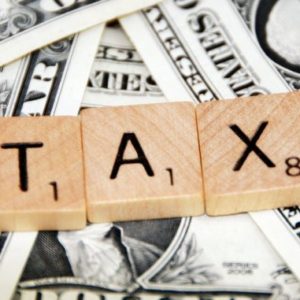According to the Federal Reserve, the COVID-19 pandemic and ensuing economic tumult in 2020 resulted in the permanent closure of roughly 200,000 more small businesses than historically close in a typical year.
The federal government certainly did its part to help small businesses survive. Through the Paycheck Protection Plan and other bipartisan initiatives, Washington kept millions of small businesses afloat and ensured millions of Americans kept getting a paycheck.
Unfortunately, some of the more radical members in the majority party in Congress are pushing a proposal that would slam the same small businesses just as many of them are beginning to turn the corner. They want to insert a major new Small Business Investment Tax into the $3.5 trillion American Family Plan. This tax increase would target “carried interest” and will make private investment in small businesses significantly less attractive. It will slow economic growth, cost jobs, and shutter businesses.
As a member of the Finance Committee in the U.S. Senate, Maggie Hassan will have an important voice on the final outcome of this tax increase legislation, H.R.1068 in the House and S.1598 in the Senate. She needs to put the interests of small business owners in New Hampshire and their employees ahead of the Washington politicians and their endless quest for more tax dollars.
There is little doubt this legislation would be disastrous for the small business climate in America. In a recent study, the U.S. Chamber of Commerce argues this tax increase would cost our economy 4.9 million jobs over the next five years by reducing private investment.
Interestingly, the Chamber also found the tax hike would actually reduce tax revenue for government at all levels; federal, state, and local. Specifically, the study showed $96 billion in lost revenues for all three levels of government over the same five years.
Finally, the Chamber shows state retirement programs would lose $3 billion annually in public retirement savings. That’s because public pension funds often rely on the kinds of investments this tax increase would penalize. In fact, the state of New Hampshire Retirement System has invested $300 million in funds built around these kinds of investments over the past decade.
Hassan needs to consider retired Granite State firefighters, police officers, and teachers when she votes on this tax increase.
And these are rosy scenarios. The Chamber study was conducted and released before a new analysis from Bloomberg showed the House version of this tax increase is even harsher and more restrictive of small business investment than previously thought. According to the analysts they spoke to, the legislation amounts to a 98 percent tax increase on these investments.
After the economic downturn created by the COVID-19 pandemic and resulting shutdowns, the federal government took swift action to ensure small businesses can survive and hold onto their employees. Yes, mistakes were made and too much money was undoubtedly spent. But Washington showed, if only for a brief moment, that it could unite to act boldly in the best interest of the American people.
The politicians in Washington need to tap into that spirit once again as they consider this anti-business, job-killing tax increase.





